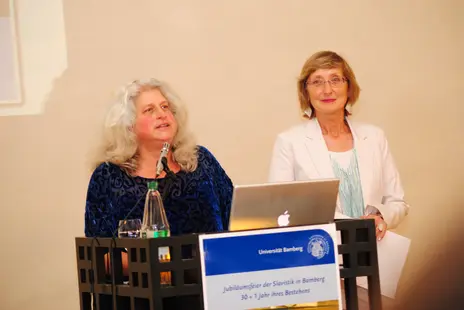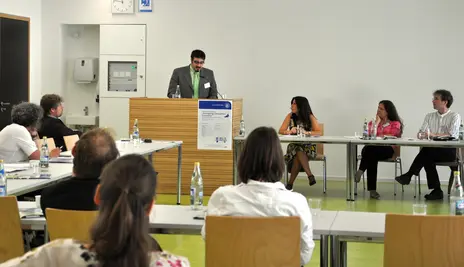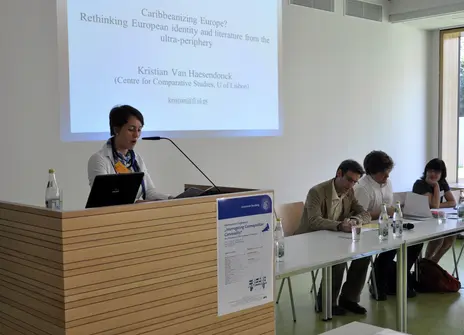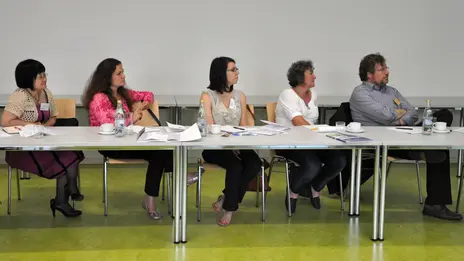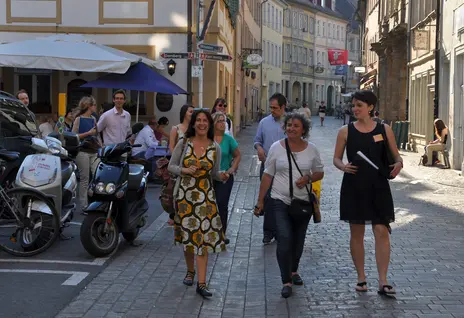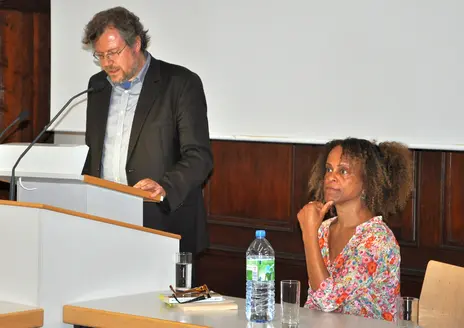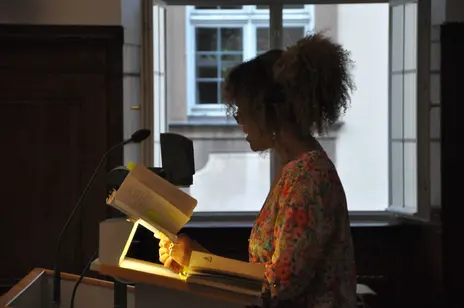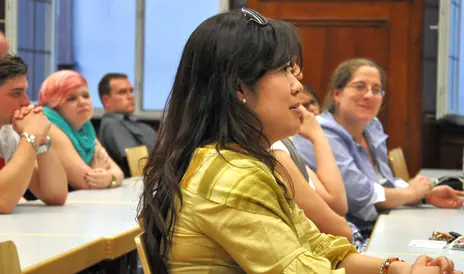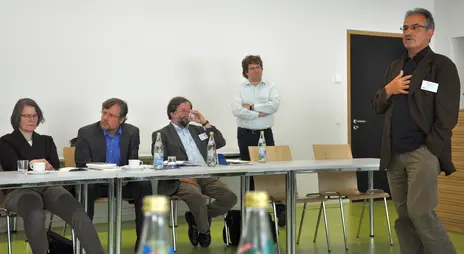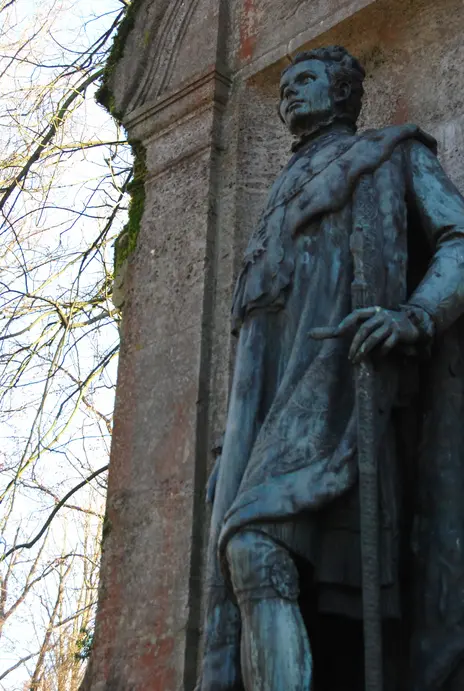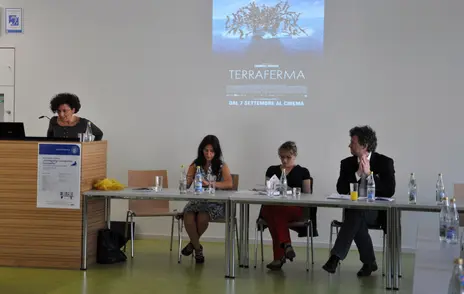International Conference "Interrogating Cosmopolitan Conviviality"
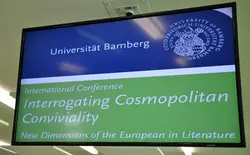
From May 24 to 25, the Department of English Literature hosted the international conference "Interrogating Cosmopolitan Conviviality: New Dimensions of the European in Literature."
Speakers from China, the United States and Europe discussed issues of cosmopolitanism and identity in a wide range of national and trans-national European literatures.
For two days, the conference, organised by Christoph Houswitschka and Federico Fabris, offered the unprecedented opportunity of a comparative analysis of "conviviality" in European literature(s).
Partly having made a very long journey to Bamberg, conference participants entered into a lively discussion on the concept of "conviviality" itself, as well as its various literary representations - particularly of cosmopolitan environs.
As part of the conference, the two internationally-renowned authors Bernardine Evaristo and Gino Carmine Chiellino gave readings; in their respective works of fiction and poetry, both explore issues of intercultural communication, translation and representation across the whole of Europe.
The conference topic was a distinctively interdisciplinary one inviting speakers from English, German, Italian Literary and Postcolonial Studies. Concepts such as “multiculturalism”, “globalisation”, “migration”, “Black literature” and “cosmopolitanism” have contributed to raise questions about the future of Postcolonial Studies – opening up to issues of “canon expansion” and “rerouting”, among others. From a somewhat counter-perspective, attempts at turning Europe itself into a highly problematic region of postcolonial analysis have also been made.
The conference set out to blur borders between distinct national discourses on so-called minority literatures in Europe. In fact, while a considerable number of studies has been published over the last fifteen years which testify to a renewed historical interest in Europe’s shameful colonial past, wider literary approaches to the same subject matter are still a rare sight.
Opening up to contributions from the fields of Literary, Cultural, Artand Media studies, conference participants 1) had a stimulating dialogue across distinct colonial and migration histories in Europe, as well as 2) charted new routes out of the impasse which has been holding sway over postcolonial studies since the emergence of notions of “multiculturalism” and "globalisation".
